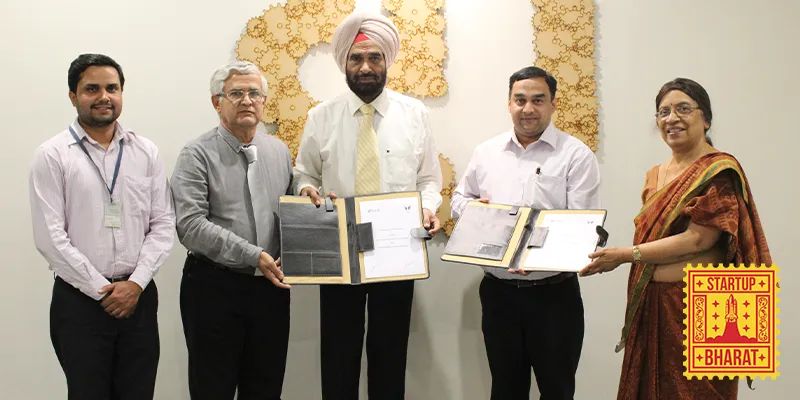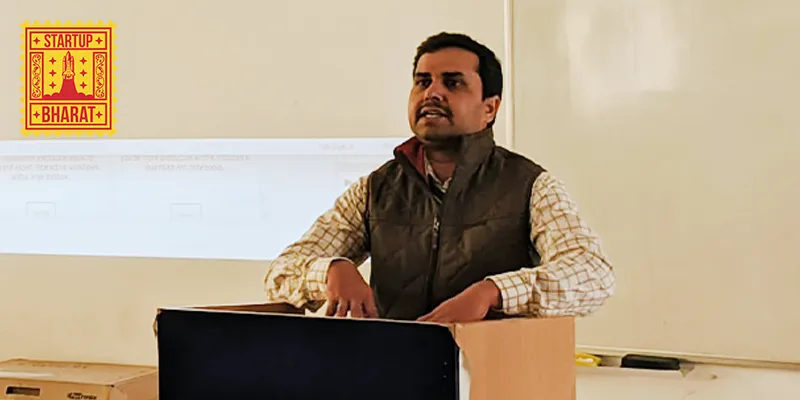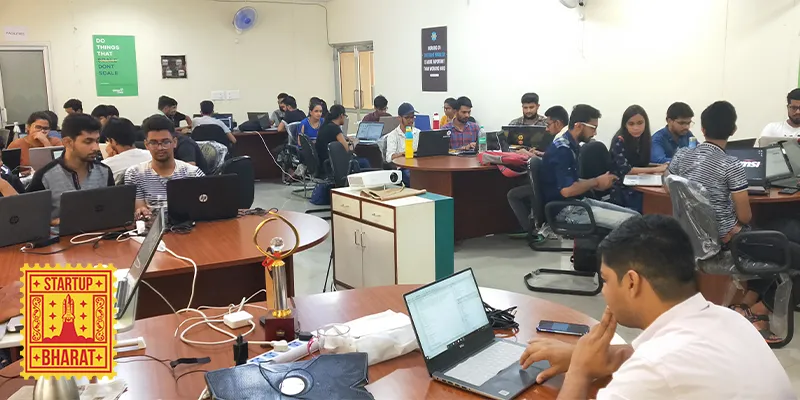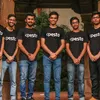[Startup Bharat] Forsk Coding School began with 50 students, eyes Rs 1.5 Cr revenue by FY21
Jaipur-based Forsk Coding School equips engineering graduates with industry-level skill sets and aims to improve the employment rate among fresh graduates.
The Annual Employability Survey 2019 report suggested that 80 percent of Indian engineers were actually not fit for any job. It further stated that only 2.5 percent of them possessed skills in the Artificial Intelligence (AI) space that the current and future industry requires.
This abundance of engineers, but lack of required skill sets has given birth to several coding bootcamps that promise to equip engineering graduates with industry-level skill sets. One such bootcamp startup is Jaipur-based . The academy, run by Forsk Technologies, was founded by Sylvester Fernandes and Yogendra Singh in the summer of 2015.
“We wanted to help improve the employment ratio among fresh graduates in Jaipur, hence selected this as our base,” says Yogendra, 40.

The team of Forsk Coding School with the VC of BSDU during an MoU signing ceremony. Forsk is BSDU's official education partner in the ML and AI domains.
Quest for value addition
Popular for its “project-based learning approach”, Forsk focuses on Python, Data Science, Machine Learning (ML), AI, and web.
From the beginning of the programme, the coding school involves students in capstone projects. It helps improve skills in coding and computer science fundamentals, and ultimately, secure a quality career in the industry.
Founders Yogendra and Sylvester, 43, have known each other since 2008, when they worked at Mango Technologies in Bengaluru. Sylvester, with a doctorate in cryptography, comes with 15 years of experience in application development and deployment of mobile applications. He has previously worked as the Principal Scientist at Neuerung Techsoft, and as the CTO at Card Pro Solutions. Sylvester was the CEO at Mango Design.
Yogendra, on the other hand, is a Data Engineer with 15 years of experience. He was previously a Senior Engineer at Qualcomm India, and the Tech Lead at Mango Technologies. Prior to Forsk, Yogendra was the CTO at TharSoft Labs.
Passionate about teaching and mentoring people, the duo started Forsk. The team has eight core team members and a bunch of interns.
“Our primary objective was to bring the industry approach of software development and product engineering,” Yogendra says.
Forsk is a Danish word, meaning “regulatory”. Yogendra says, “It signifies bringing discipline and value addition to our current education philosophy and, thus, improving skills.”

Co-founder Yogendra delivers a lecture at a two-day bootcamp at Banasthali University, Rajasthan.
The story so far
Working both offline and online, Forsk offers bootcamps for a duration of 45 days to six months. Both freshers and working professionals can enroll in its programmes.
The coding bootcamp could reach out to only 50 students in the first year of operations.
“Bootcamp was a new concept in India, particularly in Tier II cities like Jaipur. We had to spend a lot of time creating awareness,” Yogendra says. Additionally, with the trend of mass recruiters, people failed to realise the importance of technical skills.
“Proving to companies that our graduates were better equipped with skills when compared to a freshman was a challenge,” Yogendra says. “Perseverance and constantly building long-term relationships with academics and industry veterans has helped us resolve those issues,” he adds.
Its first bootcamp was conducted by partnering with Manipal University in Jaipur. Since then, Forsk has tied up with educational groups in Rajasthan, including JECRC College and Bhartiya Skill Development University in Jaipur, IIIT in Kota, and Sobhasaria College in Sikar.
Yogendra says, “These tie-ups help us get mass enrolment for our bootcamps.”
In 2019, Forsk reached out to 1,000 students, in the form of bootcamps, workshops, faculty development programmes, and awareness sessions.
How does it work?
During bootcamps, along with technical skills in Python and Data Science, Forsk also helps students prepare for interviews, rework resumes, and reach out to partner companies for placements.
The daily activity time ranges between two hours to full-day training sessions, depending on the nature and duration of the bootcamp. “In some cases, we charge an upfront fee from the students; in others, we charge fees after placements,” Yogendra says.
The fees range between Rs 10,000 to Rs 40,000, depending on the course enrolment support required by the candidates.
Forsk’s flagship programme - Forsk Summer Students Developer Programme - was started in summer 2017, and brings in hundreds of students every year.

Students at the Forsk Summer Students Developer Programme, 2019.
Recently, the startup offered a free online instructor-led bootcamp in Rajasthan. More than 800 students registered for the event. As a part of its CSR activity, Forsk conducts faculty development programmes for technical colleges in Rajasthan.
“In the next session, we want to conduct this programme in other states as says,” Yogendra says.
Majority of Forsk’s revenue is generated from the fees paid by the students. Since the last one year, it has also earned revenue from partner companies who hire its students. Its partner companies are Jumio, Vaibhav Global, VoipXP, IDeepner, and Alphonic.
Graduates working with these partners remain on Forsk’s rolls for the first six months, and it raises an invoice to partner companies. The companies then on-board these resources by paying a hiring fee to Forsk.
According to the founders, the startup’s current revenue is around Rs 50 lakh, and it aims to cross Rs 1.5 crore in the next financial year.
“The first three years were challenging but now we have reached breakeven, with positive unit economics.”
Market overview and future plans
The Indian edtech market is pegged to touch $1.96 billion by 2021, says a report by KPMG and Google. Forsk’s bootcamp is similar to that of , Lambda School, , BridgeLabs, and Interviewbit.
However, Yogendra feels that there is a differentiator.
“Our training programmes mimic the industry, where the focus is on building things. Candidates write multiple code lines every day to follow the industry best practices of the software development cycle. While there are other players, any bootcamp with strong industry placements will be a winner,” he says.
Bootstrapped since inception, Forsk plans to open for funding towards the end of 2020. In the next five years, Forsk aims to become the leading skilled resource provider to tech companies in India and abroad.
(Edited by Teja Lele Desai)


![[Startup Bharat] Forsk Coding School began with 50 students, eyes Rs 1.5 Cr revenue by FY21](https://images.yourstory.com/cs/2/3fb20ae02dc911e9af58c17e6cc3d915/startup-bharat-ii-5-1580897953595.png?mode=crop&crop=faces&ar=2%3A1&format=auto&w=1920&q=75)
![[YS Exclusive] Why San Francisco’s coding bootcamp Lambda School is placing its bets on India](https://images.yourstory.com/cs/2/730b50702d6c11e9aa979329348d4c3e/TeamatLambdaSchool1569404013364png?fm=png&auto=format&h=100&w=100&crop=entropy&fit=crop)






